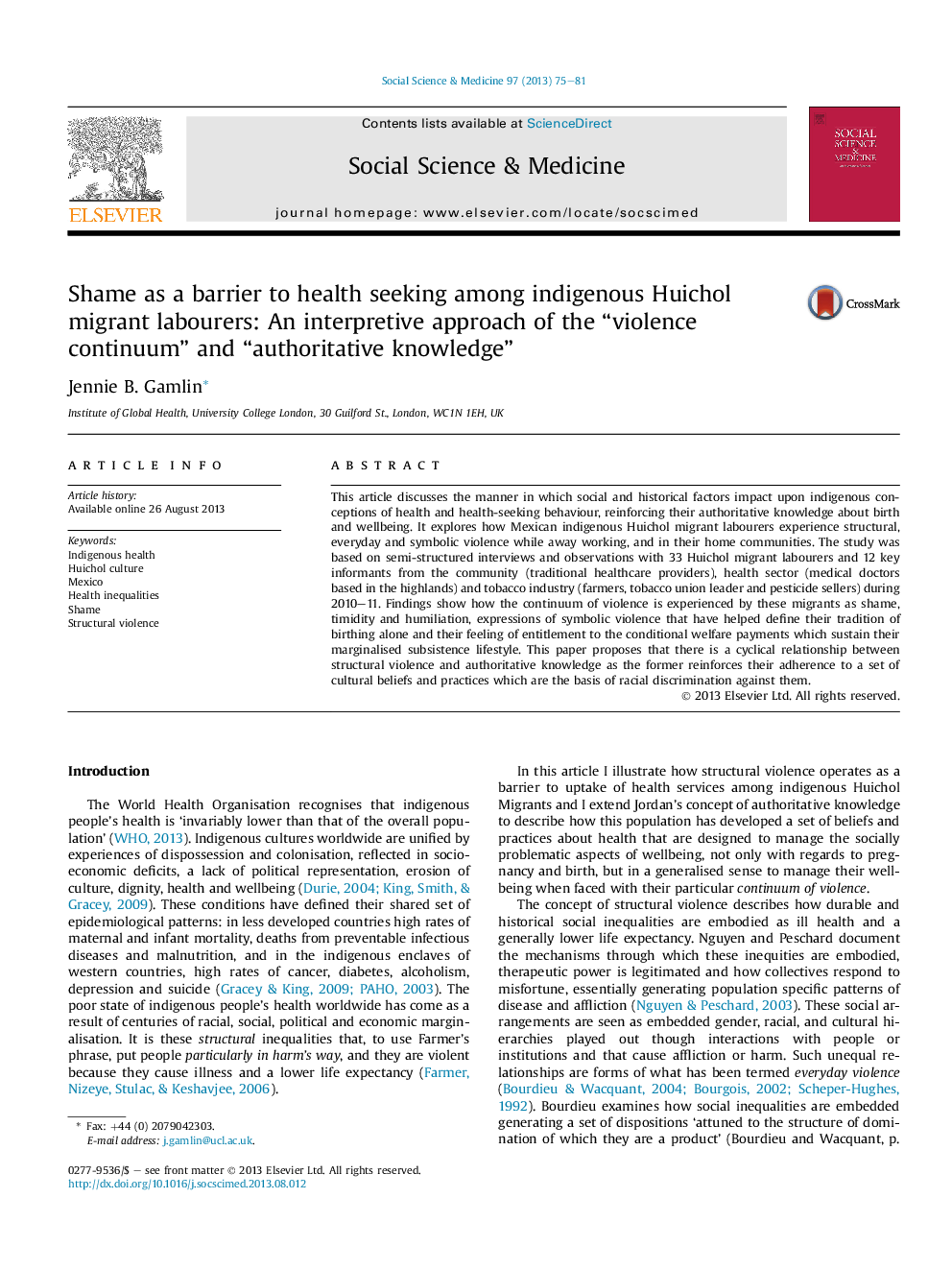| Article ID | Journal | Published Year | Pages | File Type |
|---|---|---|---|---|
| 7336423 | Social Science & Medicine | 2013 | 7 Pages |
Abstract
This article discusses the manner in which social and historical factors impact upon indigenous conceptions of health and health-seeking behaviour, reinforcing their authoritative knowledge about birth and wellbeing. It explores how Mexican indigenous Huichol migrant labourers experience structural, everyday and symbolic violence while away working, and in their home communities. The study was based on semi-structured interviews and observations with 33 Huichol migrant labourers and 12 key informants from the community (traditional healthcare providers), health sector (medical doctors based in the highlands) and tobacco industry (farmers, tobacco union leader and pesticide sellers) during 2010-11. Findings show how the continuum of violence is experienced by these migrants as shame, timidity and humiliation, expressions of symbolic violence that have helped define their tradition of birthing alone and their feeling of entitlement to the conditional welfare payments which sustain their marginalised subsistence lifestyle. This paper proposes that there is a cyclical relationship between structural violence and authoritative knowledge as the former reinforces their adherence to a set of cultural beliefs and practices which are the basis of racial discrimination against them.
Related Topics
Health Sciences
Medicine and Dentistry
Public Health and Health Policy
Authors
Jennie B. Gamlin,
